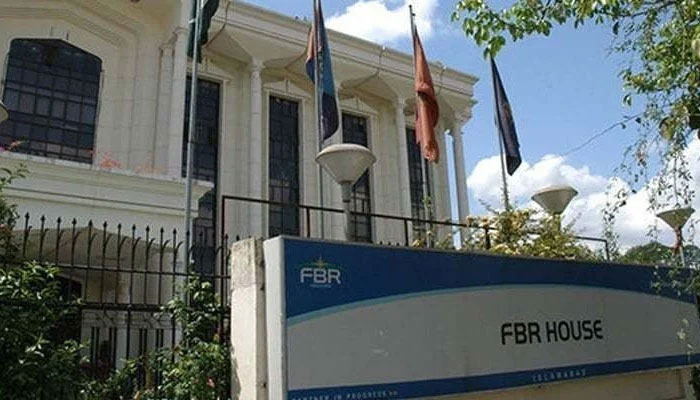Tax dilemma
LAHORE: The state seems terrified of annoying traders and has again come up with a scheme that will not document their businesses, but if traders agree, it could enhance revenues.
It is not clear what the Federal Board of Revenue wants; is it documentation or revenue? Are sustainable revenues guaranteed without documentation? The FBR made a similar mistake in the past by deducting withholding tax at source from suppliers, importers. The result is that 85 percent of income tax is collected under withholding mode. This might have eased the burden of the revenue collectors but has resulted in a distortion in the tax regime as many consider the withholding tax as an expense and charge it to the consumers. Most also consider withholding tax as their final tax liability and do not pay any tax at all. The result is that the tax-to-GDP ratio has never really increased in Pakistan. The over 20,000 to 25,000 staff of FBR hardly collects 15 to 20 percent of the total through its efforts.
Traders are grossly under-taxed in Pakistan. There are around 3 million traders conducting business through shops with shutters. Hardly 50,000 pay taxes. Most do not pay any tax at all. Those that pay taxes do so under the annual turnover scheme. Under this scheme, traders declare their turnover on their own sweet will. There is no official mechanism to assess their turnover as they do not have any documents about purchases and sales. The new so-called easy scheme introduced by FBR is an extension of the existing scheme. Under this scheme, instead of annual turnover, the FBR has categorized the traders’. Now, instead of annual turnover, they would pay tax in their category on a monthly basis. This scheme would not exclude any trader, so if it is implemented, the revenues would sharply increase (that is what the FBR wants). The details of the scheme have not been unveiled as FBR is probably planning to charge higher taxes than what these traders are paying through the current turnover scheme.
The question is, would the traders accept the scheme? FBR seems to have assured the IMF that the scheme would be acceptable to the traders. But if we go by past history, the traders have never accepted any government proposal if it meant increasing their tax liabilities without documentation. The turnover tax still ranges below one percent despite many attempts to double it. This time around, the traders, as is customary, would first refuse to adopt the new scheme, but if forced, they would ask the FBR to lower the monthly tax that it wants to apply. What has leaked out in the press is that the lowest tax on traders that fall in the lowest category is Rs 1,200 per month, which comes to Rs 14,400 per year. This is a very high tax by the standards of the majority of traders who would not be asked to provide sales and purchase records.
The traders, as usual, would first strongly resist, but if the government remained stubborn, they would ask for lower taxes. They would linger on the process through negotiations and protests, as they did in the case of CNIC conditions, and we might see a much diluted implementation after the first half of the next fiscal year (the government intends to start collecting this tax from July 1). The decision even otherwise has indicated that FBR is not interested in documentation and would probably adopt the same approach in the case of real estate and other professions. Our coffers would remain starved of revenue if we fail to fully document the economy.
-
 Andrew, Sarah Ferguson Refuse King Charles Request: 'Raising Eyebrows Inside Palace'
Andrew, Sarah Ferguson Refuse King Charles Request: 'Raising Eyebrows Inside Palace' -
 Adam Sandler Reveals How Tom Cruise Introduced Him To Paul Thomas Anderson
Adam Sandler Reveals How Tom Cruise Introduced Him To Paul Thomas Anderson -
 Washington Post CEO William Lewis Resigns After Sweeping Layoffs
Washington Post CEO William Lewis Resigns After Sweeping Layoffs -
 North Korea To Hold 9th Workers’ Party Congress In Late February
North Korea To Hold 9th Workers’ Party Congress In Late February -
 All You Need To Know Guide To Rosacea
All You Need To Know Guide To Rosacea -
 Princess Diana's Brother 'handed Over' Althorp House To Marion And Her Family
Princess Diana's Brother 'handed Over' Althorp House To Marion And Her Family -
 Trump Mobile T1 Phone Resurfaces With New Specs, Higher Price
Trump Mobile T1 Phone Resurfaces With New Specs, Higher Price -
 Factory Explosion In North China Leaves Eight Dead
Factory Explosion In North China Leaves Eight Dead -
 Blac Chyna Opens Up About Her Kids: ‘Disturb Their Inner Child'
Blac Chyna Opens Up About Her Kids: ‘Disturb Their Inner Child' -
 Winter Olympics 2026: Milan Protestors Rally Against The Games As Environmentally, Economically ‘unsustainable’
Winter Olympics 2026: Milan Protestors Rally Against The Games As Environmentally, Economically ‘unsustainable’ -
 How Long Is The Super Bowl? Average Game Time And Halftime Show Explained
How Long Is The Super Bowl? Average Game Time And Halftime Show Explained -
 Natasha Bure Makes Stunning Confession About Her Marriage To Bradley Steven Perry
Natasha Bure Makes Stunning Confession About Her Marriage To Bradley Steven Perry -
 ChatGPT Caricature Prompts Are Going Viral. Here’s List You Must Try
ChatGPT Caricature Prompts Are Going Viral. Here’s List You Must Try -
 James Pearce Jr. Arrested In Florida After Alleged Domestic Dispute, Falcons Respond
James Pearce Jr. Arrested In Florida After Alleged Domestic Dispute, Falcons Respond -
 Cavaliers Vs Kings: James Harden Shines Late In Cleveland Debut Win
Cavaliers Vs Kings: James Harden Shines Late In Cleveland Debut Win -
 2026 Winter Olympics Snowboarding: Su Yiming Wins Bronze And Completes Medal Set
2026 Winter Olympics Snowboarding: Su Yiming Wins Bronze And Completes Medal Set




